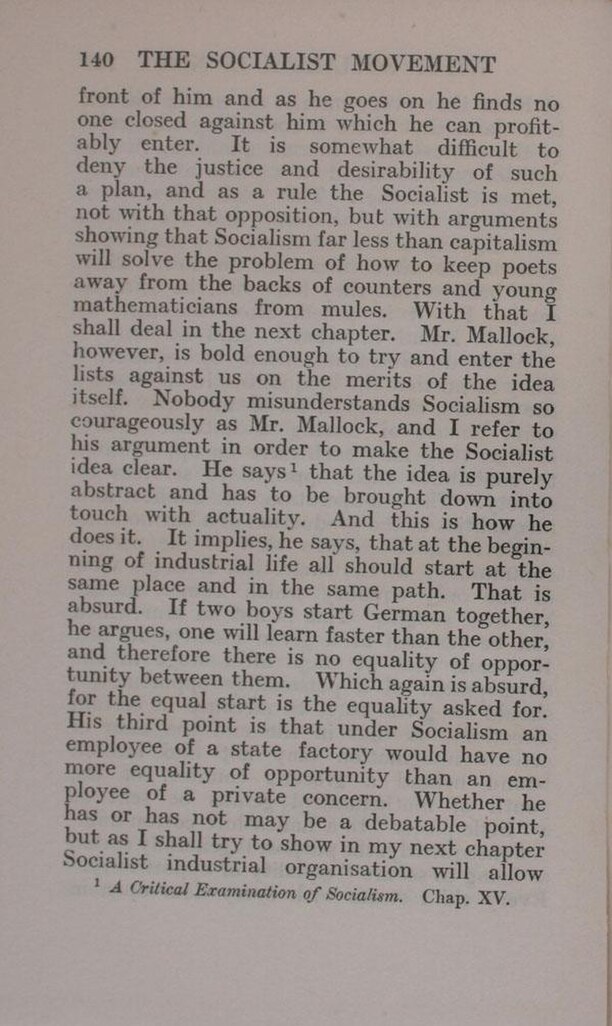front of him and as he goes on he finds no one closed against him which he can profitably enter. It is somewhat difficult to deny the justice and desirability of such a plan, and as a rule the Socialist is met, not with that opposition, but with arguments showing that Socialism far less than capitalism will solve the problem of how to keep poets away from the backs of counters and young mathematicians from mules. With that I shall deal in the next chapter. Mr. Mallock, however, is bold enough to try and enter the lists against us on the merits of the idea itself. Nobody misunderstands Socialism so courageously as Mr. Mallock, and I refer to his argument in order to make the Socialist idea clear. He says[1] that the idea is purely abstract and has to be brought down into touch with actuality. And this is how he does it. It implies, he says, that at the beginning of industrial life all should start at the same place and in the same path. That is absurd. If two boys start German together, he argues, one will learn faster than the other, and therefore there is no equality of opportunity between them. Which again is absurd, for the equal start is the equality asked for. His third point is that under Socialism an employee of a state factory would have no more equality of opportunity than an employee of a private concern. Whether he has or has not may be a debatable point, but as I shall try to show in my next chapter Socialist industrial organisation will allow
- ↑ A Critical Examination of Socialism. Chap. XV.
